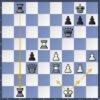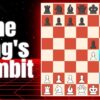A former Wimbledon doubles champion has been ordered to return approximately £100,000 in prize money following his acceptance of an 18-month doping ban.
The player achieved victories in the Doubles category at the All-England Club in 2022 and at the US Open in 2023.

Max Purcell, aged 27, will serve an 18-month suspension. This duration represents a 25 percent reduction from the standard two-year ban, attributed to his “full co-operation and information sharing” with authorities.
The violation occurred after Purcell received IV infusions exceeding 500ml on two occasions in December 2023. He had fallen ill while in Bali.
According to regulations set by the World Anti-Doping Code and the Tennis Anti-Doping Programme (TADP), the limit for IV infusions is 100ml within any 12-hour period.
Purcell stated that the International Tennis Integrity Agency (ITIA) acknowledged the excessive infusion was not intentional and confirmed the contents were WADA-approved, providing no performance-enhancing advantage.
Commenting on the incident, Purcell said: “It was 11 days prior to my first match of the season and was also administered at a 24/7 medical facility in a third world location after feeling unwell and fatigued from training.”
In a statement shared on Instagram, he described the personal impact: “This case has been going on for months, seriously affecting my quality of life.”
He continued: “From being unable to sleep and eat properly and refusing to be by myself, to developing nervous and anxious tics, which I still currently battle day to day.”
Purcell added that he “couldn’t sit and enjoy anything without the thought of the case and the endless possibilities of what sanction I would receive.”
He concluded his statement, expressing relief: “I’m so glad this is finally over for me and I can move on with my life.”
The Australian player is now prohibited from playing, coaching, or attending any tennis events until June 11, 2026.
As he began a voluntary provisional suspension in December, a portion of his ban has already been served.
In February, US Open and Australian Open champion Jannik Sinner also accepted a three-month ban. His case involved inadvertent contamination with the banned steroid clostebol by his physiotherapist.
Sinner was initially cleared by the ITIA, but WADA appealed the decision to the Court of Arbitration for Sport. However, the Italian player later reached a case resolution agreement directly with WADA, resulting in the ban.











